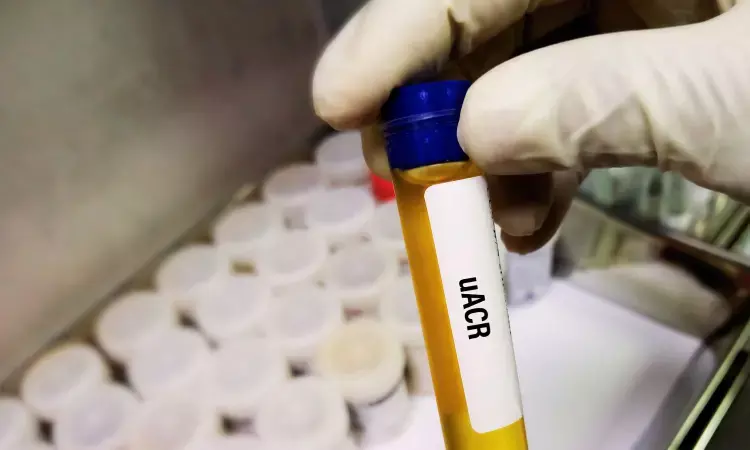- Home
- Medical news & Guidelines
- Anesthesiology
- Cardiology and CTVS
- Critical Care
- Dentistry
- Dermatology
- Diabetes and Endocrinology
- ENT
- Gastroenterology
- Medicine
- Nephrology
- Neurology
- Obstretics-Gynaecology
- Oncology
- Ophthalmology
- Orthopaedics
- Pediatrics-Neonatology
- Psychiatry
- Pulmonology
- Radiology
- Surgery
- Urology
- Laboratory Medicine
- Diet
- Nursing
- Paramedical
- Physiotherapy
- Health news
- Fact Check
- Bone Health Fact Check
- Brain Health Fact Check
- Cancer Related Fact Check
- Child Care Fact Check
- Dental and oral health fact check
- Diabetes and metabolic health fact check
- Diet and Nutrition Fact Check
- Eye and ENT Care Fact Check
- Fitness fact check
- Gut health fact check
- Heart health fact check
- Kidney health fact check
- Medical education fact check
- Men's health fact check
- Respiratory fact check
- Skin and hair care fact check
- Vaccine and Immunization fact check
- Women's health fact check
- AYUSH
- State News
- Andaman and Nicobar Islands
- Andhra Pradesh
- Arunachal Pradesh
- Assam
- Bihar
- Chandigarh
- Chattisgarh
- Dadra and Nagar Haveli
- Daman and Diu
- Delhi
- Goa
- Gujarat
- Haryana
- Himachal Pradesh
- Jammu & Kashmir
- Jharkhand
- Karnataka
- Kerala
- Ladakh
- Lakshadweep
- Madhya Pradesh
- Maharashtra
- Manipur
- Meghalaya
- Mizoram
- Nagaland
- Odisha
- Puducherry
- Punjab
- Rajasthan
- Sikkim
- Tamil Nadu
- Telangana
- Tripura
- Uttar Pradesh
- Uttrakhand
- West Bengal
- Medical Education
- Industry
Urinary Metabolites Linked to Kidney Risk in Type 2 Diabetes: Study

Researchers have found in a long-term study involving 1,894 patients over 9.2 years that higher levels of urinary choline and dimethylglycine are associated with increased risks of renal events and mortality in individuals with type 2 diabetes (T2D). These findings suggest that tubular stress may play a key role in mediating these outcomes.The study has been published in the Journal of Clinical Endocrinology & Metabolism. The study was conducted by Jian-Jun Liu, Clinical Research Unit, Khoo Teck Puat Hospital (KTPH) in Singapore.
Kidney disease is a frequent complication of T2D and continues to be a primary cause of mortality among this group. While prior research had associated elevated plasma choline with kidney injury, the role of urinary metabolites of choline, particularly those derived from the choline oxidation pathway, has not been exhaustively investigated. This new research illuminates how alterations in choline metabolism by the kidneys may serve as early indicators of subsequent renal deterioration.
The research investigated 1,894 Singaporean patients with T2D whose mean age was 57.4 years and whose proportion of male subjects was 51.1%. The participants were enrolled from a regional hospital and a primary care clinic. The investigators sought to elucidate the connection between urinary metabolites of the choline oxidation pathway, specifically choline, betaine, dimethylglycine, and sarcosine, and CKD progression.
Metabolite concentrations in urine were determined by liquid chromatography-mass spectrometry, and other clinical factors like blood pressure, cardiovascular conditions, kidney function (eGFR), and tubulopathy biomarkers were self-reported or measured. Participants were longitudinally followed using electronic medical records and clinic visits.
The main outcome was a composite of end-stage kidney disease (ESKD)—measured as persistent eGFR < 15 mL/min/1.73 m², requirement for dialysis, or renal-related death—or doubling of serum creatinine concentrations.
Key Findings
• During a median follow-up of 9.2 years, 263 participants had renal events. The patients had much higher baseline urine choline (median: 32.1 µM vs 16.9 µM) and dimethylglycine (1.25 vs 0.74 units) levels than the participants who did not have renal complications.
Statistical analysis found that:
• Each standard deviation (SD) rise in urine choline was related to a 33% higher risk for the composite renal outcome (adjusted hazard ratio [aHR]: 1.33, P < .001)
• Each SD rise in dimethylglycine was related to a 30% higher risk (aHR: 1.30, P < .001)
• In addition, after controlling for clinical risk factors, higher levels of these metabolites were also independently associated with an increased risk of all-cause mortality
• Urine choline: 1.2-fold increase in risk (P < .05)
• Dimethylglycine: 1.17-fold increase in risk (P < .05)
• Notably, scientists propose that tubular stress can play a mediating function in the pathway between urine choline and dimethylglycine leading to progressive kidney injury.
Excess urine choline and dimethylglycine were independently associated with increased risk of CKD progression and all-cause mortality in patients with type 2 diabetes. The research indicates that the association may be partially mediated by tubular stress, highlighting a new pathway in diabetic kidney disease pathogenesis. These findings validate the potential use of urinary metabolites as useful biomarkers for the identification of patients at risk for severe kidney outcomes early on.
Reference:
Jian-Jun Liu, Sylvia Liu, Resham L Gurung, Janus Lee, Huili Zheng, Keven Ang, Clara Chan, Lye Siang Lee, Sharon Han, Jean-Paul Kovalik, Jianhong Ching, Pierre-Jean Saulnier, Samy Hadjadj, Thomas M Coffman, Su Chi Lim, Urine choline oxidation metabolites predict chronic kidney disease progression in patients with type 2 diabetes, The Journal of Clinical Endocrinology & Metabolism, 2025;, dgaf281,https://doi.org/10.1210/clinem/dgaf281
Dr Riya Dave has completed dentistry from Gujarat University in 2022. She is a dentist and accomplished medical and scientific writer known for her commitment to bridging the gap between clinical expertise and accessible healthcare information. She has been actively involved in writing blogs related to health and wellness.
Dr Kamal Kant Kohli-MBBS, DTCD- a chest specialist with more than 30 years of practice and a flair for writing clinical articles, Dr Kamal Kant Kohli joined Medical Dialogues as a Chief Editor of Medical News. Besides writing articles, as an editor, he proofreads and verifies all the medical content published on Medical Dialogues including those coming from journals, studies,medical conferences,guidelines etc. Email: drkohli@medicaldialogues.in. Contact no. 011-43720751


